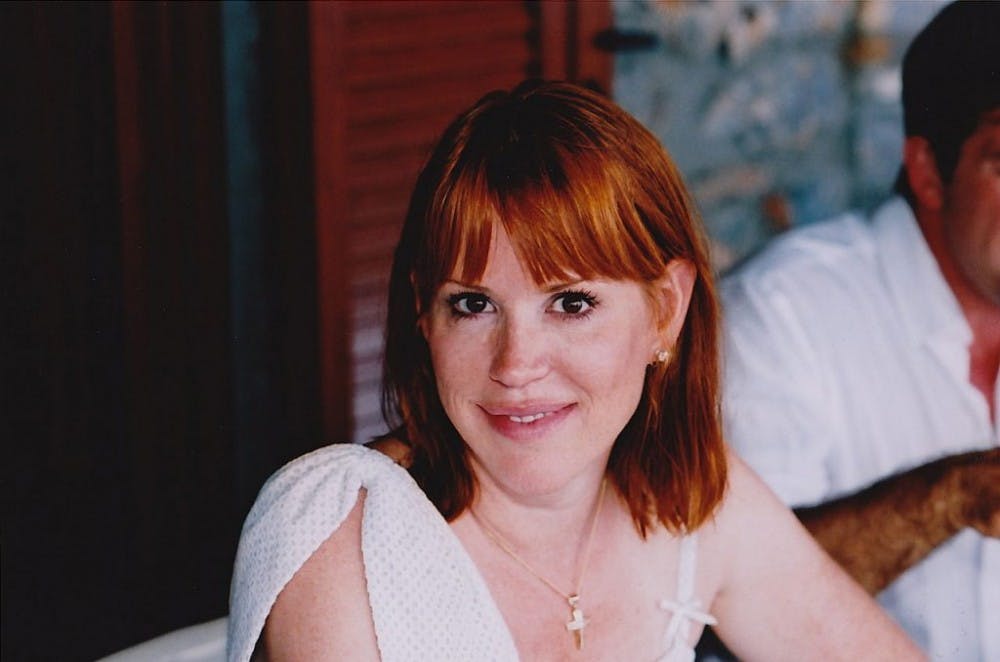Though I was not granted permission to see any of these movies until my early teens, phrases like “this place is so confusing” and “it’s in Johnson’s underwear” were often part of my everyday conversations. No movie, however, was quoted more in my household than Sixteen Candles.
The classic ‘80s rom-com that centers on a shy high school sophomore (Sam) who secretly fantasizes about winning the heart of a hot senior (Jake) with a steady girlfriend (Caroline) while she also tries to evade the advances of a hormonal and hilariously awkward freshman boy (known only as “Geek”) never fails to make most of my family members breathless with laughter. For years after I first saw it, the same could be said for me. That was until I watched the movie for the first time in a couple years when I was back for winter break after my freshman year of college and realized the social implications of the movie’s “happy” ending.
The driving force of the movie is the fact that Sam’s family, in the midst of preparing for her older sister’s wedding, forgets her 16th birthday, and the film does scratch the surface of what it’s like to feel insignificant as a teenager.
Nevertheless, what you really want from the get-go when you watch the movie is for Sam to end up with the guy of her dreams. The opportunity for this only arises when Caroline, his long-term girlfriend who is pretty and a seemingly pleasant enough person (although admittedly a touch irresponsible), throws a huge party at Jake’s house.
Understandably pissed off, Jake gets back at her by giving the sex-crazed freshman, Geek, permission to “take her for a spin” in his dad’s Rolls Royce while she is blackout drunk. The two of them have sex, and Jake and Caroline break up the next morning. Sam ends up with Jake, the two of them kiss over birthday cake and young girls swoon, hoping to be just half as lucky.
Except Sam only ends up with Mr. Right because he gives another boy the permission and the means to rape his ex-girlfriend.
Disgusted, I pointed out to my family that Caroline was intoxicated to the point that she literally does not know who else is in the car with her and therefore cannot give consent. Furthermore, the fact that she was Jake’s girlfriend neither makes her his property to loan out to other males, nor does her throwing a rager at his parents’ house warrant a violation of her trust or her body.
The crowning jewel of the whole thing, however, is that the rape is brushed off as a good thing. It’s the reason Caroline and Jake break up (and therefore Sam gets her happy ending), and Caroline even goes so far as to say she enjoyed sleeping with Geek.
I went to a fairly conservative high school where abstinence is the primary focus of sex education and consent (and why an intoxicated person cannot give it) was never discussed. I watched and enjoyed this movie countless times before I registered that the film’s “happy” ending is achieved through rape. I expected everyone in my family to be just as appalled as I was by the revelation.
Instead, they told me “It’s just supposed to be funny.”
Our generation has a reputation for being overly sensitive, for crying that we feel unsafe during controversial discussions and for “overreacting” as I did to things that are only intended to be taken as jokes. But there is nothing overly sensitive about digging into a once-beloved film and exposing its propagation of an enormous social problem. What is overly sensitive, however, is refusing to acknowledge that a movie promotes rape culture simply because you enjoy watching it.
Just as Sam’s family gets caught up in preparing for her sister’s wedding and forgets her birthday, people’s views on Sixteen Candles get caught up in the comedy and forget that a teenage girl’s trust, body and rights are violated for the sake of laughs.
It doesn’t mean the movie should or should not be watched, just that it leads young teens who are watching it to believe girls who drink are asking for it, boys who are controlled by nothing but their sex drive are not responsible for their actions and the rape of an intoxicated girl is to be taken lightheartedly.
Therefore, if we are going to watch such movies, we need to have a conversation about their ramifications, no matter how uncomfortable it might make people who love the movie.






